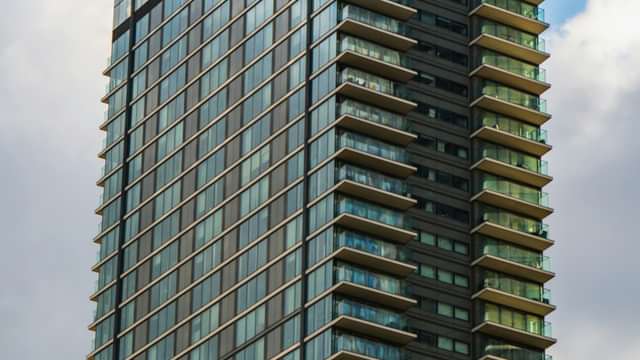This is the third in a series of articles looking at the grounds a landlord can use to oppose a tenant’s lease renewal where the lease is protected by the terms of the Landlord and Tenant Act 1954. In this article we are going to be looking at the grounds of opposition contained in sections 30(1)(d) and 30(1)(e). These are both referred to as “non-fault” grounds, where the landlord is not relying on the default of the tenant but on a ground given within the statute which, if proven, entitles the landlord to possession and disentitles the tenant to a new lease. If a landlord is successful in opposing a lease renewal relying on either of these grounds then a new lease will not be granted to the tenant. However, if the landlord is successful when relying on section 30(1)(e) statutory compensation is payable to the tenant. We will see in the next quarter’s article that statutory compensation is also payable to a tenant if a landlord successfully relies on the grounds in section 30(1)(f) and section 30(1)(g).
Section 30(1)(d) states that the tenant is not entitled to a new lease if the landlord has offered “and is willing to provide or secure the provision of alternative accommodation for the tenant, that the terms on which the alternative accommodation is available are reasonable having regard to the terms of the current tenancy and to all other relevant circumstances, and that the accommodation and the time at which it will be available are suitable for the tenant’s requirements (including the requirement to preserve goodwill) having regard to the nature and class of his business and to the situation and extent of, and facilities afforded by, the holding”. The onus is very squarely on the landlord to show that the alternative accommodation is suitable.
Effectively this ground says that a tenant is not entitled to a new lease of its premises if the landlord is able to provide suitable accommodation that meets various criteria. The ground has been used very infrequently but is an attractive ground as, if successful, a landlord is not obliged to pay statutory compensation to the tenant. The landlord is obliged to pay reasonable removal expenses. As this ground is used very infrequently, there is very little case law to provide advice as to the extent to which expenses of moving are recoverable.
The landlord does not have to own either the freehold or leasehold interest of the premises that it believes is suitable at the time the offer is made. The landlord must, however, intend to take an interest in the premises in question so that it can grant a lease to the tenant if the offer of the premises is accepted. The offer must be made either before or at the same time as a hostile section 25 notice is served. The reasonableness of the offer is determined at the time of the court hearing. The landlord can, therefore, change the terms of its offer between the time the offer is made and the hearing in any proceedings.
The terms of the offer of the accommodation must be reasonable. Reasonable is judged by reference to the terms of the tenant’s current tenancy and all relevant circumstances relating to the current tenancy. Again, there is little case law as to what is deemed to be reasonable.
The premises must also be suitable for the tenant’s requirements. That includes suitability as to the facilities already enjoyed by the tenant in its existing premises, the situation and size of the current premises and the nature and class of the tenant’s business. Reference will also be made to things such as whether the existing premises are a single let building or a multi-tenanted building and how that compares to the new premises, and also the facilities surrounding the premises. Goodwill must be preserved and in the case of small businesses this could be incredibly important. If a landlord is successful on this ground but the tenant chooses not to accept the offer of suitable alternative accommodation, then the landlord is entitled to its premises back and the tenant must move elsewhere.
In the current market, where there is still a lot of available space, this is an incredibly useful ground for a landlord to rely upon; its most attractive feature being that no statutory compensation is payable to the tenant.
The other ground that we are going to consider in this edition of Quarter Day is the ground of objection that a landlord can use under section 30(1)(e) of the 1954 Act, which states “where the current tenancy was created by the sub-letting of part only of the property comprised in a superior tenancy and the landlord is the owner of an interest in reversion expectant on the termination of that superior tenancy, that the aggregate of the rents reasonably obtained on separate lettings of the holding and the remainder of that property would be substantially less than the rent reasonably obtainable on a letting of that property as a whole, that on the termination of the current tenancy the landlord requires possession of the holding for the purposes of the letting or otherwise disposing of the said property as a whole, and that in view thereof the tenant ought not to be granted a new tenancy”! That means, in a brief précis, that the landlord thinks it could get more rent for the whole of the property where the tenant currently only occupies part. The ground is rarely used, mainly because the person opposing this lease renewal must be the superior landlord, not the tenant’s immediate landlord; that superior landlord must require possession of the premises; and, finally, the rent that the superior landlord could obtain in letting separate parts of the property must be substantially less than it could obtain on a letting of the whole.
In the fourth and final part of this series of articles next quarter, we will be looking at the grounds used most frequently by landlords to oppose lease renewals, namely ground (f) – demolition/reconstruction, and ground (g) – owner occupation.




















































































